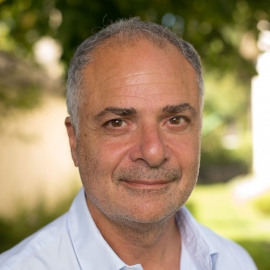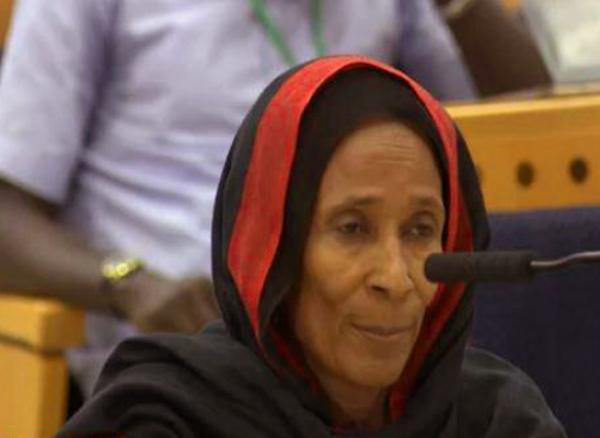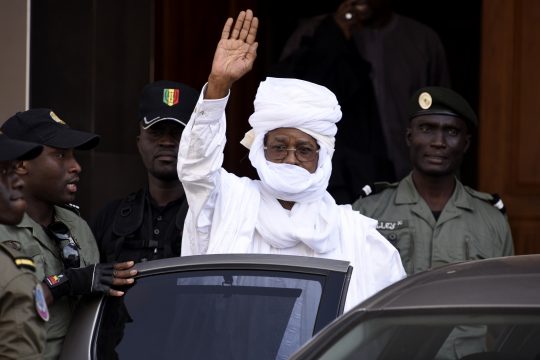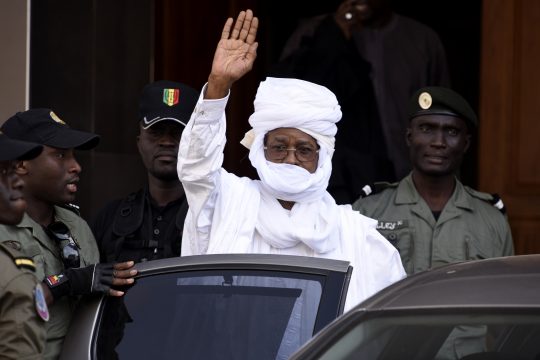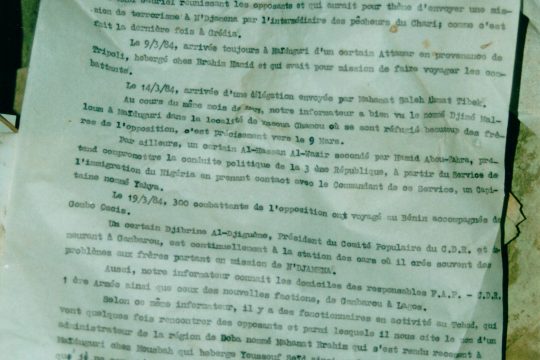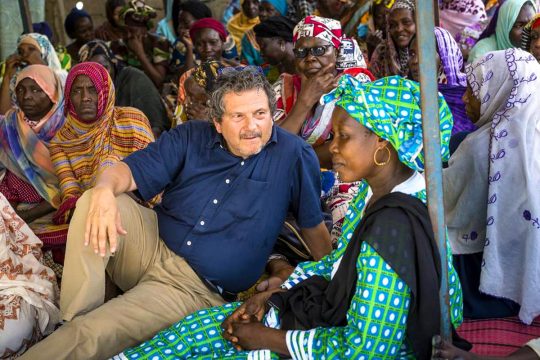In a society as conservative as Chad’s, taboos were too strong. So, for 25 years, women had remained silent. “There was too much shame and fear,” says Kaltouma Defallah. In her modest house in N’Djamena, a fan tries to cool the room down, whereas the outside temperature in the sun is 42 degrees. Tears run down the cheeks of this former Air Africa hostess as she watches a video of her testimony before the Extraordinary African Chambers (EAC) in Dakar on October 20.
Kaltouma’s testimony, along with those of three of her companions, told the Court that the former Chadian president was not only guilty of war crimes and crimes against humanity but also responsible for sexual abuse of Kaltouma and many other women during detention. On May 30, for the first time ever, a court convicted a former Head of State for personally committing sexual violence.
The indictment against former Chadian President Hissène Habré mentioned summary executions, kidnapping, torture and mass human rights abuses, but said nothing about rape and sexual abuse. The 700-page Human Rights Watch report on Habré’s crimes did not mention it either. In the run-up to the trial, Khadidja Hassan Zidane, another victim of the Habré régime, let people know that she would “say things” if she found herself face to face with the former Head of State, but not Kaltouma. For her, there was still too much shame and fear. When she was released, her jailers made her swear on the Koran not to say anything, otherwise they would take revenge.
Kaltouma’s story reflects the paranoid nature of the regime set up by Habré between 1982 and 1990. The Chadian air hostess living in Côte d’Ivoire stopped over in N’Djamena in February 1988 and, unfortunately for her, got out of the plane to embrace her parents. That was when she was arrested by Chadian security agents and accused of plotting against the government because she belongs to the Hadjeraï tribe. She was then sent for a year to Ouadi Doum detention camp in the Chadian desert.
Last October 20, Kaltouma was preparing to testify before the EAC. She was still reluctant to talk about the rapes she suffered for a year. Every day, after washing the clothes of the guards, she was forced to be their sexual slave, along with dozens of other female detainees, including one who was only 13 and another 15. “As I waited to testify, I still had fear in my gut and was full of hatred for Habré,” she says. “Then, when I saw Hissène Habré in the dock, he was no longer the all-powerful god who had terrorized us. I testified without fear. My fear and hatred of him disappeared. I released the suffering that was lodged in my stomach and my wound closed up. I healed and freed myself.” The Extraordinary African Chambers allowed Kaltouma to free herself from fear and shame and recover her dignity as a free woman. Thus, in so doing, she transferred condemnation from the victim to the perpetrator.
The previous day, Khadidja Hassan Zidane had already broken the taboo around rape by telling the court about her torture. “They put a tyre around me and a pipe in my mouth, inflating my stomach until I lost consciousness,” she recounted. “When I came round, I found myself in a cell. They did that for three days. They kept me 3 months and 15 days at the presidential residence.” Then she told the astonished judges how Habré himself raped her four times, along with his men. “The first night, the President did it himself,” she said. “He took me four times and then his men. It happened at the presidential residence, in the big hall.”
The presiding judge then asked her which president she meant. “Hissène Habré,” she replied. “There was no other.” The former all-powerful head of State remained silent in the dock, his head covered by his white turban and eyes hidden behind dark glasses. Roles had been reversed: Khadidja testified before Hissène Habré, who was obliged to listen as she labelled him a rapist. And now he has been sentenced to life imprisonment for all these crimes, including rape as part of crimes against humanity.
International law and rape in conflict
It is only recently that international criminal law has started imposing heavy punishments for rape. The 1907 Hague Convention protects women and their “honour”. But it was only after the Second World War that public awareness gradually grew towards criminalizing rape as a weapon of war. The Allied military tribunals in Nuremberg did not mention the word “rape”. The Tokyo tribunal, on the other hand, sanctioned Japanese officials for having rounded up 200,000 women and forced them to be prostitutes for the soldiers. But these “comfort women” did not at the time get any apology or compensation.
It was not until the “Kunarac” judgment of the International Criminal Tribunal for the former Yugoslavia (ICTY), which convicted three men, that rape was for the first time considered to be a crime against humanity, since it was part of an ethnic cleansing campaign. In 1998, the International Criminal Tribunal for Rwanda (ICTR) considered in the Akayesu case that rape could be a constitutive act of genocide. Raping women from a community can be considered raping the body of the community and so undermining its social fabric, the tribunal explained. The ICTR judgment says many Tutsi women were forcibly subjected to sexual violence, mutilated and raped, often several times, often in public and often by more than one assailant. The rape of Tutsi women was of a systematic nature, it concluded. On March 21, 2016, the International Criminal Court (ICC) found Jean-Pierre Bemba guilty of crimes against humanity and war crimes, including sexual violence and rape against women and men by his troops in the Central African Republic between October 2002 and March 2003. The Habré trial strengthens this jurisprudence.

